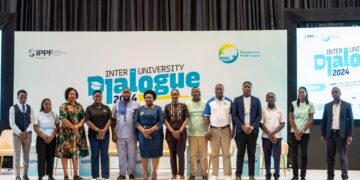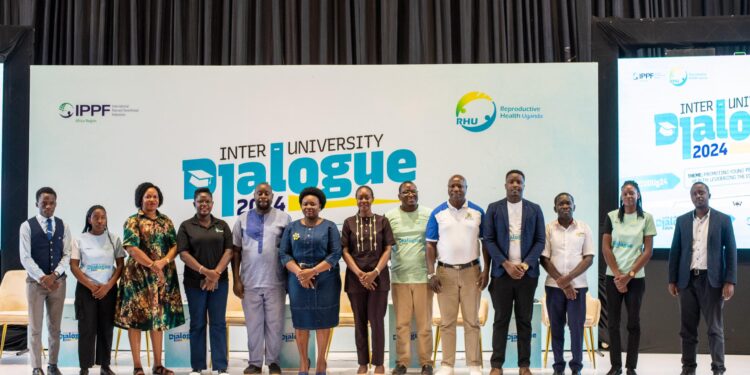Makerere University’s Dean of Students, Dr. Winifred Namuwonge Kabumbuli, has emphasized the need for strategies to harness digital platforms for sexual health awareness education and support.
Speaking at the Inter-University Dialogue 2024, organized by Reproductive Health Uganda, Dr. Kabumbuli stressed the importance of guiding students and youth on critical issues.
“We must guide them on matters requiring our experience and intellectual guidance,” she said. “We need to identify strategies for harnessing digital platforms to enhance awareness, education, and support.”
East African Legislative Assembly MP, Jacqueline Amongin echoed this sentiment.
“As we transition from analog to digital, it’s essential for young people to access information on sexual reproductive health through their phones,” she said.
Reproductive Health Uganda’s Gender and Youth Manager, Tom Kulumba, highlighted the emphasis on leveraging digital technology to drive sexual reproductive health for young people.
“Young people, our primary constituency, are tech-savvy and can access SRHR services and information through their phones,” he said.
Kulumba called for increased funding for the health sector, prioritizing youth-focused initiatives.
According to the 2024 Ugandan population census report, young people (78% of the population) face significant SRHR challenges, including:Teenage pregnancy (24%), High sexual gender-based violence, HIV prevalence (2.5% among females, 0% among males) and Limited access to SRHR services
Reproductive Health Uganda has organized Inter-University Dialogues (IUD) for the past decade, bringing together young people, policymakers, and civil society organizations.
“RHU recognizes that improving young people’s SRHR requires dialogue among diverse stakeholders,” Kulumba said.
The dialogues aim to foster open discussions on young people’s SRHR, identifying solutions to obstacles and promoting inclusive support.









